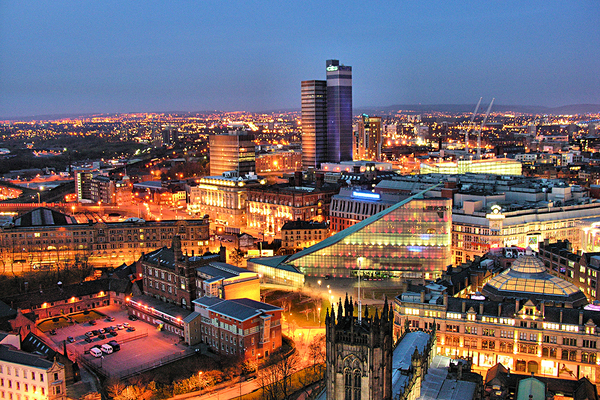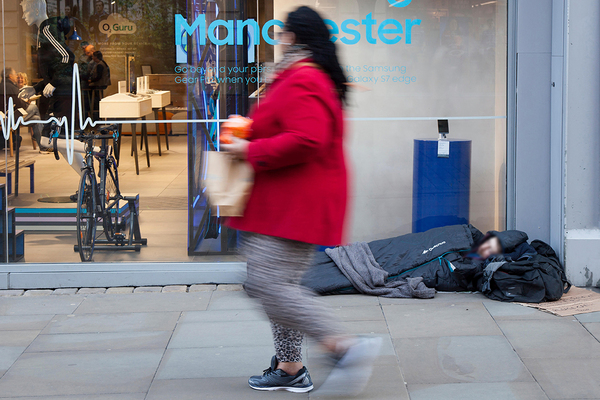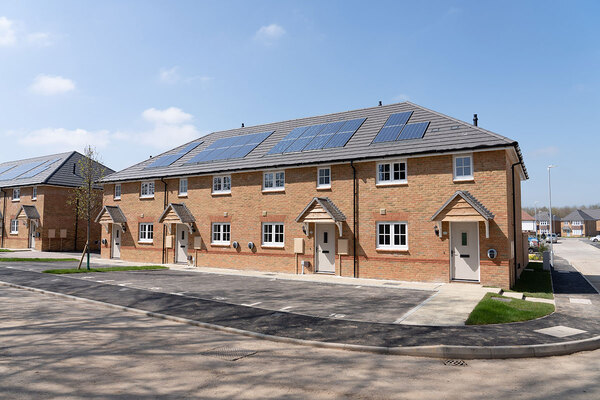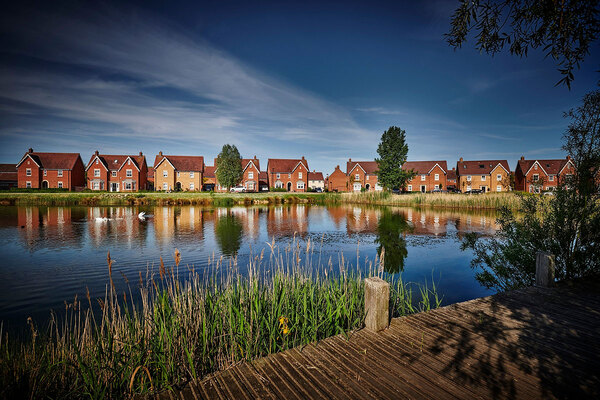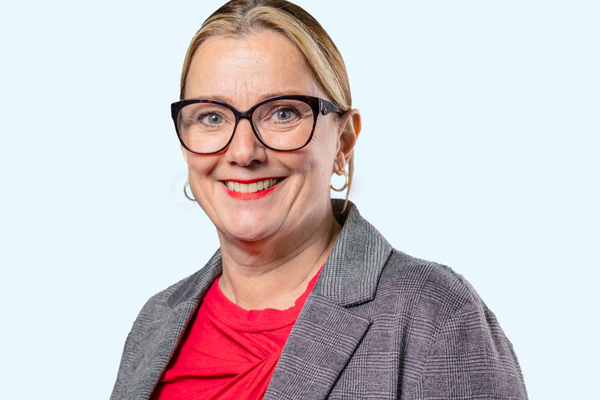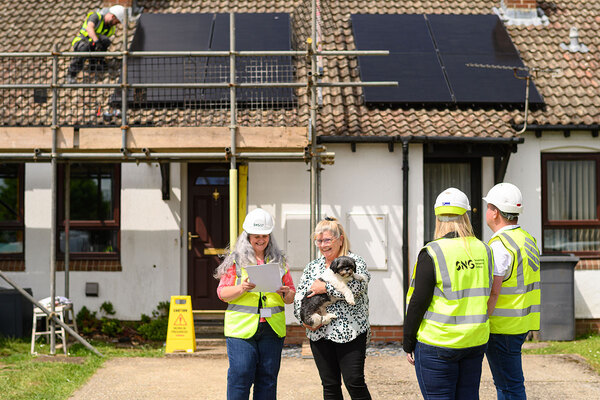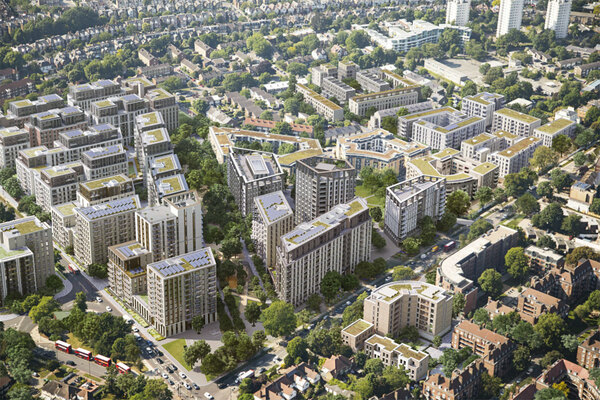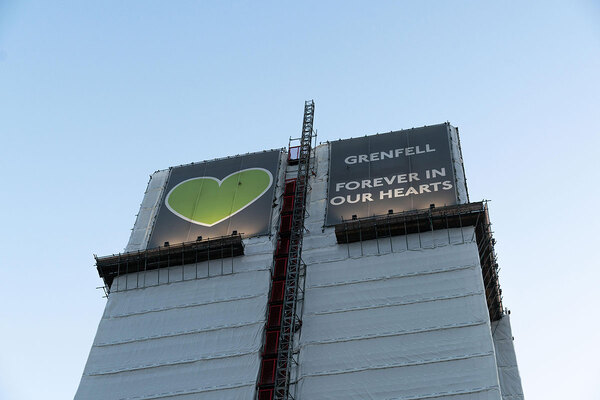You are viewing 1 of your 1 free articles
 Joanne Roney OBE
Joanne Roney OBEWhy we need more funding to tackle Manchester’s housing problems
As homelessness and housing demand remains high in Manchester, Joanne Roney calls for more commitment from central government to help fund the building of more social housing
It’s at this time of year we consider those less fortunate than ourselves and it often makes me wonder: are we doing enough? Can we do more?
The national rise in rough sleeping and homelessness is nothing short of a national crisis, and as the weather continues to get colder the image of people huddled in doorways sits in stark contrast to the inviting shop fronts and clamour from bars and restaurants.
Christmas is a time when the difference between the haves and have nots is laid bare for all to see.
Winter marks a busy season for our outreach team and support workers who are part of the Greater Manchester Homelessness Partnership.
This partnership is a group of organisations that provide support and advice to anyone worried about becoming homelessness.
Council teams - along with our voluntary sector partners - are out seven days a week checking on people who are sleeping rough across the city to offer a safe and warm place to stay.
These people are trained to provide age-appropriate support and advice in an attempt to get people off the street, and keep them off.
A total of 2,200 people in Greater Manchester have already benefited from the A Bed Every Night programme in the last year, with 157 beds made available in Manchester alone per night - which sits aside the council’s own accommodation.
Earlier this year our contact centre saw 377 families and 715 single people present as homeless in a single month.
This highlights the extent of the issue and shows that rough sleeping is only the visible part of the problem.
Prevention and early intervention is key to give people the help they need to avoid becoming homeless in the first place.
This means giving professional advice through our prevention team, along with our partners at Shelter and Citizen’s Advice, to address issues that could lead to homelessness, tailoring support to the individual.
This could include debt management, personal finance advice, help with benefits, as well as offering mediation between tenants and landlords.
Unfortunately, given the numbers presenting to us each month, our use of emergency temporary accommodation has also grown substantially in the last few years.
These families and individuals are at crisis and we will always do everything we can to find someone a roof over their head.
Although this type of accommodation is only supposed to be temporary, it’s important that we can be sure that it is decent and safe. This year we have embarked on a major review of temporary accommodations and nearly 900 properties have been inspected and improvement notices served where standards have been found wanting.
As a safety net support network, the Longford Centre in Chorlton opened in 2017 as a temporary accommodation to support those residents who have found themselves unexpectedly on the brink of homelessness.
The centre helped to house 268 people in its first year and 181 people were supported into new accommodation.
Section 21, otherwise known as ‘no fault evictions’, has become a headline grabber this year as more private sector tenants are being pushed out of their homes by unscrupulous landlords.
"Fundamentally, what we need now is for social housing to be built in the numbers that we haven’t seen for two decades"
This type of eviction accounts for a significant amount of families presenting homeless in Manchester. In response, we set up a dedicated team to support people who are at risk of an unfair eviction. Already 300 cases have been managed through the team and 52% of these tenants have been supported to stay in their homes.
Fundamentally, what we need now is for social housing to be built in the numbers that we haven’t seen for two decades.
Manchester has one of the highest proportions of social properties in the country - around 65,000 homes are socially rented, accounting for around a third of all housing in the city.
However, with 15,000 households on our register - 5,000 of which are in priority need - it’s clear that new social homes and affordable homes need to be built at scale to meet growing demand.
And we need a commitment nationally to be given the resources and funding to make it happen.
What’s more - as the freeze on Local Housing Allowance rates continues and private sector housing rents continue to rise, more Manchester people have an ever limited housing choice as benefits simply do not cover costs.
This needs to be reviewed as soon as possible.
To meet demand for affordable homes in Manchester, we have committed to helping build 6,400 affordable homes up to 2025 - with a significant amount made available as social housing.
We’ve also committed £14m to buying 62 family homes as we know there are larger properties to help big families who are vulnerable to homelessness.
With limited access to funding to build directly, we are partnering closely with the city’s housing providers to transfer council-owned land to be used for social housing.
"As the freeze on Local Housing Allowance rates continues and private sector housing rents continue to rise, more Manchester people have an ever limited housing choice as benefits simply do not cover costs. This needs to be reviewed as soon as possible"
And our major Northern Gateway project will lead off with a first phase to deliver more than 100 social homes in Collyhurst in north Manchester.
The willing is there, so it’s heartening that we hear suggestions that a council housebuilding revolution is on the way.
But until we see the necessary funding to deliver the numbers that can truly end the housing crisis, the revolution could be short-lived.
Joanne Roney, chief executive, Manchester City Council
